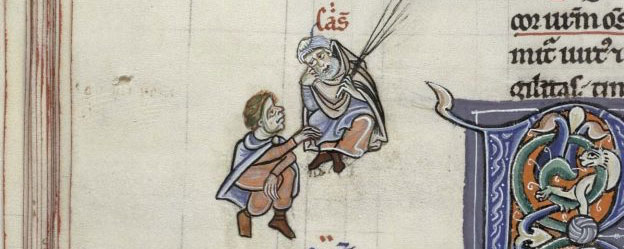Job: PostDoc position available in new project The Art of Reasoning (Huygens ING, The Hague; Deadline 13 August 2016)
21 juni 2016From the first of June 2016, Mariken Teeuwen and Irene van Renswoude have received funding from the Netherlands Organisation of Scientific Research (NWO) for a new project: ‘The Art of Reasoning: Techniques of Scientific Argumentation in the Medieval Latin West (400-1400)’. The application was put together in the 2015 scheme ‘Free Competition’.
The project discusses practices of argumentation and reasoning from the early Middle Ages up to the period of the medieval universities. Mariken Teeuwen is principal investigator, Irene van Renswoude is PostDoc for a first project and for a second project, a PostDoc position is now advertised. We want to use voices from the edge, marginal annotations and practices of guiding the reader from the blank spaces around the text to throw a new light on the dynamics of medieval intellectual life. The PostDoc position is described here. The deadline for responses is 13 August 2016.
 Paris, BnF, Latin 11127, fol. 49v: Diagrams added to a commentary on Aristotle by Boethius.
Paris, BnF, Latin 11127, fol. 49v: Diagrams added to a commentary on Aristotle by Boethius.
It is only in the last years that these paratexts have become visible to a larger audience of researchers. Before 2000, they were largely hidden in manuscript margins, now many of them are on free display in hundreds of online collections of digitized manuscripts, ready, for the first time, to be explored. From late Antiquity to the late Middle Ages, these voices in the margin are testimonies to a critical and scientific way of dealing with texts: versions are compared, passages that seem to be corrupt are marked, contrasting opinions are highlighted, confronted and discussed. In other words: the annotations offer a perspective on the intellectual culture of the Middle Ages that is much richer than previously assumed.
In our project these new sources will be explored from the perspective of the history of scholarly thinking. By studying both the period before the birth of the first universities and thereafter, we will be able to offer a new view on the evolution of scientific thinking in the medieval Latin West. The annotations of both well-known medieval scholars and anonymous ones, of monks, masters, students and readers, will be our guide.
For a complete description of the project click here.

